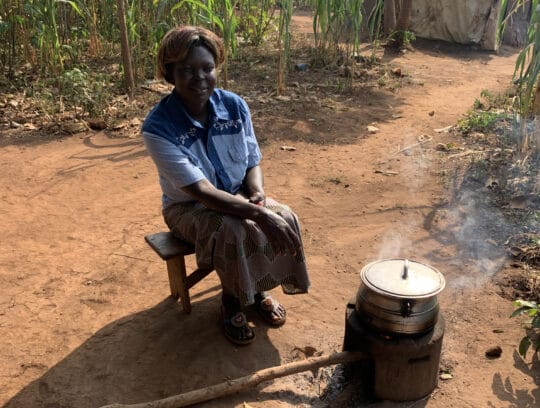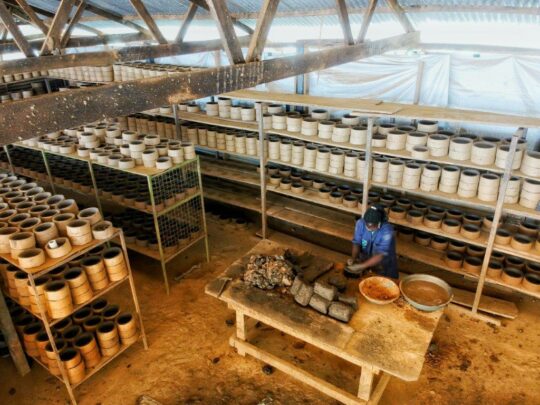By Dan Wolf
It was a long time coming – over four years since my last mission to Uganda! Unreal how time flies.
During Lifeline’s first 12 years of existence, I would usually visit twice a year. And I was planning a trip in March 2020, but . . . Covid. So I was truly anxious to get back to Uganda and observe our progress firsthand. You can read and hear about the impact of Lifeline’s work, but if you’re not there to see it yourself, you can’t really connect with it in on an emotional level and understand the extent to which our activities are bringing positive change in the lives of the less fortunate.
As I can’t cover all of my observations regarding those activities in this single blog post, I will focus on just one, namely Lifeline’s humanitarian stove intervention in Uganda’s refugee settlements, which are currently home to over 1.4 million refugees, including nearly 1 million from South Sudan alone.
Several years ago, Lifeline completed development of a fuel-saving wood stove – the EcoSmart Wood Stove or “EWS” – that was designed to meet the particular needs of refugees and other impoverished individuals. Since that time, the EWS has been distributed to about 50,000 refugee households who had been cooking on an open fire or on self-made mud stoves, which typically have a lifespan of just 3 to 6 months. Anxious to see the impact that the EWS was having, I made a visit to the camps a priority for my trip.
But . . . Covid. Just four days after my arrival, President Museveni announced the imposition of severe restrictions on movement as a result of an upsurge in cases, including the banning of inter-district travel. We tried to get a “special pass”, but to no avail and my mission to the Bidibidi refugee settlement near the South Sudanese border had to be cancelled.
Fortunately, shortly after my last mission in 2017, we implemented a small EWS pilot project at the Kiryondongo refugee settlement, which is situated about 2 hours south of Lira. We secured permission to enter that settlement on my way back to Kampala, where together with Lifeline’s Timket and Rebecca, I was able to visit with about a dozen South Sudanese families who had received the stove.
Lo and behold, each of those families was still cooking with the EWS, despite that it had been over four years since the initial distribution. The owners – most of whom were disabled – were effusive about its benefits. Not only were they using about half the amount of fuel, they were able to cook with corn husks and other nearby agricultural waste, thereby obviating the need to trek long distances to collect wood.

Armed with this evidence and a series of reports documenting consumer satisfaction with the EWS, we met with UNHCR officials in Kampala, who are now actively considering a dramatic expansion of EWS distribution in Uganda’s refugee camps. Four years ago that would have presented a daunting production challenge. But since that time, we have grown our stove factory in Lira, improved the efficiency of our operations, and are much better positioned to meet such a challenge.

I can’t express how gratifying it was to observe all of the progress Lifeline has made over the last few years in regard both to its fuel-efficient stove and clean water initiatives. And, with a little luck, UNHCR will approve the proposed EWS expansion, enabling us to improve the lives of hundreds of thousands and come that much closer to achieving our mission.
